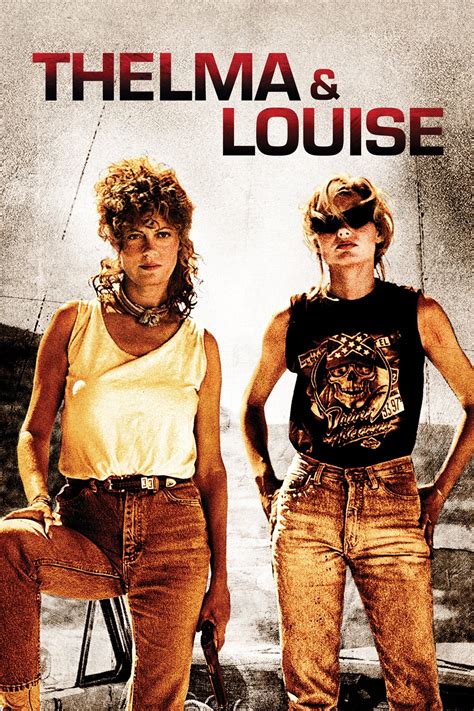Thelma & Louise

Description:
Thelma & Louise is a groundbreaking film that follows the journey of two friends, Thelma Dickinson and Louise Sawyer, who embark on a weekend getaway that quickly spirals out of control. After a violent encounter, the pair find themselves on the run from the law. As they navigate the open roads of the American Southwest, they confront societal norms and personal demons, all while forging an unbreakable bond. The film is celebrated for its strong female leads and its commentary on freedom and empowerment.Keywords:
Friendship, Freedom, Feminism, Rebellion, Journey, Societal Norms, Women's EmpowermentWas Thelma and Louise based on a true story?
"Thelma & Louise" is not based on a true story; it is a work of fiction created by screenwriter Callie Khouri. The film, released in 1991 and directed by Ridley Scott, follows two women who embark on a road trip that takes a dramatic turn. While the characters and plot are fictional, the film explores real themes of friendship, freedom, and the struggles women face in a patriarchal society. Its impact has made it a cultural touchstone, inspiring discussions about feminism and women's rights.
What was the backlash of Thelma and Louise?
"Thelma & Louise," released in 1991, faced backlash primarily for its portrayal of female empowerment and violence against men. Critics argued that the film promoted a negative view of masculinity, while some audiences were uncomfortable with the protagonists' descent into criminality and the film's ending, which saw the characters driving off a cliff rather than surrendering. Additionally, the film sparked debates about feminism, gender roles, and the representation of women in cinema, polarizing viewers and provoking discussions about women's autonomy and societal constraints.
How old was Geena Davis when she filmed Thelma and Louise?
"Thelma & Louise" was released in 1991, and Geena Davis was born on January 21, 1956. Filming likely took place in 1990, which means she was 34 years old during the production of the film.
Why do Thelma and Louise kiss at the end?
At the end of "Thelma & Louise," the kiss between the two characters symbolizes their deep bond and solidarity in the face of their tragic circumstances. Throughout the film, they have experienced profound personal transformation and have come to rely on each other for strength and support. The kiss reflects their love and commitment to one another as they choose to face their fate together rather than surrender to the oppressive forces in their lives. It encapsulates the film's themes of friendship, freedom, and defiance.
Explore More Categories: